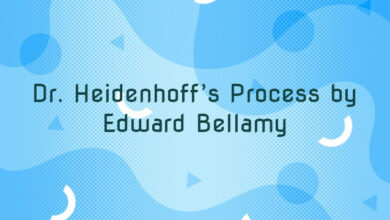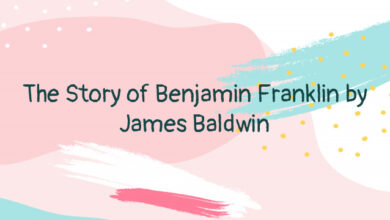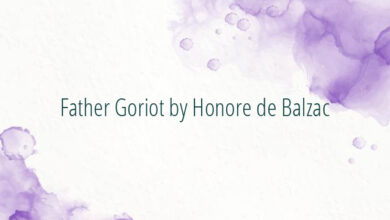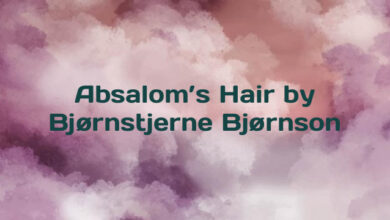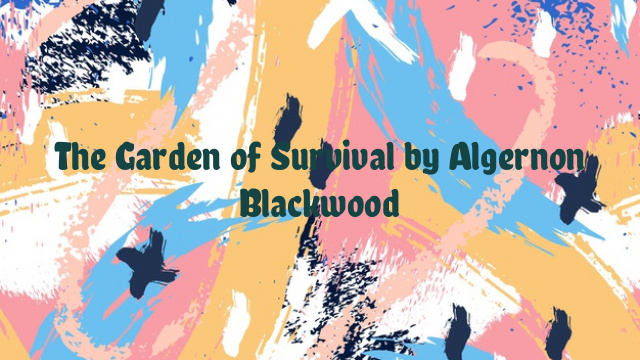
The Garden of Survival by Algernon Blackwood
Chapter IX
NOW, do not be alarmed lest I shall attempt to describe a list of fanciful unrealities that borrowed life from a passing emotion merely; the emotion was permanent, the results enduring. Please believe the honest statement that, with the singing of that bird, the pent-up stress in me became measurably articulate. Some bird in my heart, long caged, rang out in answering inner song.
It is also true, I think, that there were no words in me at the moment, and certainly no desire for speech. Had a companion been with me, I should probably have merely lit my pipe and smoked in silence; if I spoke at all, I should have made some commonplace remark: “It’s late; we must be going in to dress for dinner. . . .” As it was, however, the emotion in me, answering the singing of the bird, became, as I said, measurably articulate. I give you simple facts, as though this were my monthly Report to the Foreign Office in days gone by. I spoke no word aloud, of course. It was rather that my feelings found utterance in the rapturous song I listened to, and that my thoughts knew this relief of vicarious expression, though of inner and inaudible expression. The beauty of scene and moment were adequately recorded, and for ever in that song. They were now part of me.
Unaware of its perfect mission the bird sang, of course because it could not help itself; perhaps some mating thrush, perhaps a common blackbird only; I cannot say; I only realized that no human voice, no human music, even of the most elaborate and inspired kind, could have made this beauty, similarly articulate. And, for a moment I knew my former pain that I could not share this joy, this beauty, with others of my kind, that, except for myself, the loveliness seemed lost and wasted. There was no spectator, no other listener; the sweet spring night was lavish for no audience; the revelation had been repeated, would be repeated, a thousand thousand times without recognition and without reward.
Then, as I listened, memory, it seemed, took yearning by the hand, and led me towards that inner utterance I have mentioned. There was no voice, least of all that inner voice you surely have anticipated. But there was utterance, as though my whole being combined with nature in its birth.
Into the mould of familiar sentences of long ago it ran, yet nearer at last to full disclosure, because the pregnant sentences had altered:
“I need your forgiveness born of love. . .” passed through me with the singing of the bird.
I listened with the closest inner attention I have ever known. I paused. My heart brimmed with an expectant wonder that was happiness. And the happiness was justified. For the familiar sentence halted before its first sorrowful completion; the poignant close remained unuttered–because it was no longer true.
Out of deep love in me, new-born, that held the promise of fulfilment, the utterance concluded:
“. . . I have found a better way. . . .”
Before I could think or question, and almost as though a whisper of the wind went past, there rose in me at once this answering recognition. It seemed authentically convincing; it was glorious; it was full of joy:
“That beauty which was Marion lives on, and lives for me.”
It was as though a blaze of light shone through me; somewhere in my body there were tears of welcome; for this recognition was to me reunion.
It must seem astonishing for me, a mere soldier and Colonial Governor, to confess you that I stood there listening to the song for a long interval of what I can only term, with utmost sincerity, communion. Beauty and love both visited me; I believe that truth and wisdom entered softly with them. As I wrote above, I saw my own insignificance, yet, such was the splendour in me, I knew my right as well. It could be ever thus. My attitude alone prevented. I was not excluded, not cut off. This Beauty lay ready to my hand, always available, for ever, now. It was not unharvested. But more–it could be shared with others; it was become a portion of myself, and that which is part of my being must, inevitably and automatically, be given out.
It was, thus, nowhere wasted or unharvested; it offered with prodigal opportunity a vehicle for that inspiration which is love, and being love of purest kind, is surely wisdom too. The dead, indeed, do not return, yet they are active, and those who lived beauty in their lives are still, through that beauty, benevolently active.
I will give you now the change instantaneously produced in me:
There rose in me another, deeper point of view that dispelled as by magic the disenchantment that had chilled these first days of my return. I stood here in this old-world garden, but I stood also in the heart of that beauty, so carefully hidden, so craftily screened behind the obvious, that strong and virile beauty which is England. Within call of my voice, still studying by lamplight now the symbols of her well-established strength, burning, moreover, with the steady faith which does not easily break across restraint, and loving the man as she had loved the little boy, sat one, not wondering perhaps at my unspoken misunderstanding, yet hoping, patiently and in silence, for its removal in due time. In the house of our boyhood, of our earliest play and quarrels, unchanged and unchangeable, knowing simply that I had “come home again to her,” our mother waited. . . .
I need not elaborate this for you, you for whom England and our mother win almost a single, undivided love. I had misjudged, but the cause of my misjudgment was thus suddenly removed. A subtler understanding insight, a sympathy born of deeper love, something of greater wisdom, in a word, awoke in me. The thrill had worked its magic as of old, but this time in its slower English fashion, deep, and characteristically sure. To my country (that is, to my first experience of impersonal love) and to my mother (that is, to my earliest acquaintance with personal love) I had been ready, in my impatience, to credit an injustice. Unknown to me, thus, there had been need of guidance, of assistance. Beauty, having cleared the way, had worked upon me its amazing alchemy.
There, in fewest possible words, is what had happened.
I remember that for a long time, then, I waited in the hush of my childhood’s garden, listening, as it were, with every pore, and conscious that some one who was pleased interpreted the beauty to my soul. It seemed, as I said, a message of a personal kind. It was regenerative, moveover, in so far that life was enlarged and lifted upon a nobler scale; new sources of power were open to me; I saw a better way. Irresistibly it came to me again that beauty, far from being wasted, was purposive, that this purpose was of a redeeming kind, and that some one who was pleased co-operated with it for my personal benefit. No figure, thank God, was visible, no voice was audible, but a presence there indubitably was, and, whether I responded or otherwise, would be always there.
And the power was such that I felt as though the desire of the planet itself yearned through it for expression.
Chapter X
I WATCHED the little bird against the paling sky, and my thoughts, following the happy singing, went slowly backwards into the half-forgotten past. . . . They led me again through the maze of gorgeous and mysterious hopes, un-remembered now so many years, that had marked my childhood. Few of these, if any, it seemed, had known fulfilment. . . . I stole back with them, past the long exile in great Africa, into the region of my youth and early boyhood. . . .
And, as though a hand uncovered it deliberately, I recalled an earliest dream–strangest, perhaps, of all the mysterious dreams of that far time. It had, I thought, remained unrealized, as, certainly, till this moment, it had lain forgotten–a boyish dream that behind the veils of the Future some one waited for me with the patience of a perfect love that was my due.
The dream reached forward towards some one who must one day appear, and whose coming would make life sweet and wonderful, fulfilling, even explaining, the purpose of my being. This dream which I had thought peculiarly my own, belongs, I learned later, to many, if not to the race in general, and, with a smile at my own incurable vanity (and probably a grimace at being neatly duped), I had laid it on one side. At any rate, I forgot it, for nothing happened to keep it active, much less revive it.
Now, however, looking backwards, and listening to the singing in the sky, I recalled what almost seemed to have been its attempt at realization. Having recovered its earliest appearance, my thought next leaped forward to the moment that might possibly have been its reappearance. For memory bore me off without an effort on my part, and set me abruptly within a room of the house I had come home to, where Marion sat beside me, singing to the harp she loved. The scene rose up before me as of yesterday. . . the emotions themselves reconstituted. I recalled the deep, half-sad desire to be worthy of her, to persuade myself I loved as she did, even the curious impulse to acknowledge an emotion that came and went before it could be wholly realized–the feeling, namely, that I ought to love her because–no more, no less is the truth–because she needed it: and then the blank dismay that followed my failure, as with a kind of shameful horror before a great purpose that my emptiness left unfulfilled.
The very song came back that moved me more than any else she sang–her favourite it was as well. I heard the twanging of the strings her fingers plucked. I heard the words:
"About the little chambers of my heart
Friends have been coming--going--many a year.
The doors stand open there.
Some, lightly stepping, enter; some depart.
Freely they come and go, at will.
The walls give back their laughter; all day long
They fill the house with song.
One door alone is shut, one chamber still."
With each repetition of the song, I remembered, how at that time my boyhood’s dream came back to me, as though its fulfillment were at last at hand; as though, somehow, that “door” must open, that “still chamber” welcome the sweetness and the loveliness of her who sang. For I could not listen to the music, nor watch her fingers moving down the strings, her slender wrist and rounded arm, her foot upon the pedal as she held the instrument so close–without this poignant yearning that proved ever vain, or this shame of unshed tears my heart mysteriously acknowledged. To the end, as you know, that door remained unopened, that chamber still.
It was the singing of this sweet English bird, making articulate for me the beauty I could not utter, that brought back to memory the scene, the music, and the words. . . .
I looked round me; I looked up. As I did so, the little creature, with one last burst of passionate happiness, flew away into the darkness. And silence followed, so deep that I could hear the murmur of my blood. . . an exquisite joy ran through me, making me quiver with expectancy from head to foot. . . .
And it was then suddenly I became aware that the long-closed door at last was open, the still chamber occupied. Some one who was pleased, stretching a hand across the silence and the beauty, drew me within that chamber of the heart, so that I passed behind the door that was now a veil, and now a mist, and now a shining blaze of light. . . passed into a remote and inner stillness where that direct communion which is wordless can alone take place.
It was, I verily believe, a stillness of the spirit. At the centre of the tempest, of the whirlpool, of the heart’s commotion, there is peace. I stood close against that source of our life which lies hid with beauty very far away, and yet so near that it is enclosed in every hope, in every yearning, and in every tear. For the whisper came to me, beyond all telling sure.
Beauty had touched me, Wisdom come to birth; and Love, whispering through the silence those marvellous words that sum up all spiritual experience, proved it to me:
“Be still–and know. . . .”
I found myself moving slowly across the lawn again towards the house. I presently heard the wind mousing softly in the limes. The air was fresh and cool. The first stars were out. I saw the laburnum drooping, as though thick clusters of these very stars had drifted earthwards among the branches; I saw the gleam of the lilac; across the dim tangle of the early roses shone the familiar windows, cosy now with the glow of lighted lamps. . . and I became suddenly, in a very intimate sense, “aware” of the garden. The Presence that walked beside me moved abruptly closer. This Presence and the garden seemed, as in some divine mysterious way, inseparable.
There was a stirring of the dimmest and most primitive associations possible. Memory plunged back among ancestral, even racial, shadows. I recalled the sweet and tender legend of the beginnings of the world, when something divine, it was whispered, was intimate with man, and companioning his earliest innocence, walked with him in that happier state those childlike poets called–a garden. That childhood of the world seemed very near.
I found again the conditions of innocence and pristine wonder–of simplicity. There was a garden in my heart, and some one walked with me therein. For Life in its simplest form–of breathing leaves and growing flowers, of trees and plants and shrubs–glowed all about me in the darkness. The blades of grass, the blossoms hanging in the air, strong stems and hidden roots, fulfilled themselves with patience upon every side, brimming with beauty and stillness did not seek to advertise. And of this simplest form of life–the vegetable kingdom–I became vividly aware, prodigal, mysterious, yet purposive. The outer garden merged with the inner, and the Presence walked in both of them. . . .
I was led backwards, far down into my own being. I reached the earliest, simplest functions by which I myself had come to be, the state where the frontier lies between that which is dead and that which is alive. Somewhere between the mineral and vegetable worlds, I knew, that frontier lay. For the vegetable kingdom alone possesses the power of converting the mineral or the chemical into the living organism by absorption; and here, among the leaves and roots and flowers, that power was sweetly, irresistibly, at work.
It seemed I reached that frontier, and I passed it. Beauty came through the most primitive aspect of my being.
And so I would tell you, you alone of all the world, that the Presence walking beside me in the scented darkness came suddenly so close that I was aware of it in what seemed my earliest and most innocent state of soul.
Beside me, in that old-world garden, walked the Cause of all things. The Beauty that in you was truth, in Marion tenderness, was harvested: and somebody was pleased.

